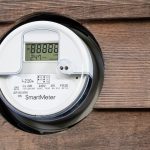 I had to speak to a customer yesterday, on the telephone.
I had to speak to a customer yesterday, on the telephone.
He had rang into our call centre because he was concerned that the smart meter we were fitting outside his house, would interfere with his hearing aid. He had also heard that they can affect pacemakers… not that he had one, but he was concerned anyway.
Understandably so.
He wanted to speak to someone technical.
That’s me.
I allayed his fears and explained that the frequencies and power levels that we use, would be most unlikely to affect his hearing aid. I’m pleased to say that he was calm and pleasant to talk to (not all customers who contact us are) and just wanted some information so he could make his own informed decision.
He rang back a couple of hours later saying that after talking to his hearing specialists, using the info I had given him, he was now happy to have the meter fitted.
Happy days. But it got me thinking: people read things on the internet and just assume that they are true, without doing any further research. There is actually a lot of misinformation on the web. There are websites dedicated to anti smart metering and many of them contain the wrong information or out of date information. Some of them cite research done by ‘experts’… experts that – when you look into it – have no credible qualifications for stating their ‘facts’.
Of course, doing your own research takes time, and talking with with people who actually know what they are talking about, isn’t always easy. It’s so much easier to Google it, click on that first link and take what you read as gospel.
The internet is a wonderful tool if we use it properly.
Sadly, many of us don’t.
Thats put my mind at rest if we ever have one installed.📞👂
I don’t think smart will reach your neck of the woods anytime soon, Al.
I heard that you guys have only just switched from 405 line 🙂
People will believe almost anything they read on the Internet. As Abraham Lincoln said. It must be true. I read it on the Internet.
That’s true, that is.